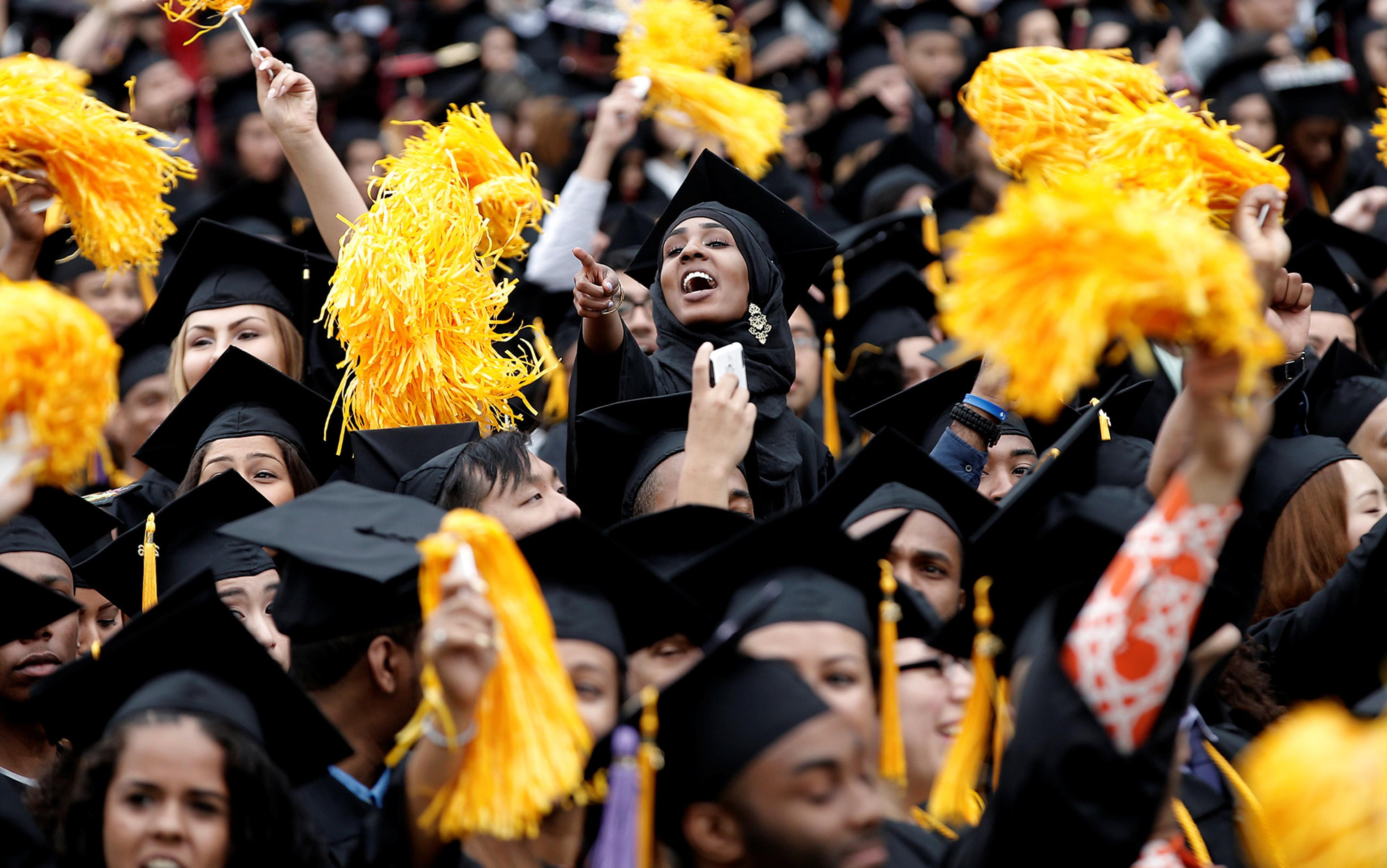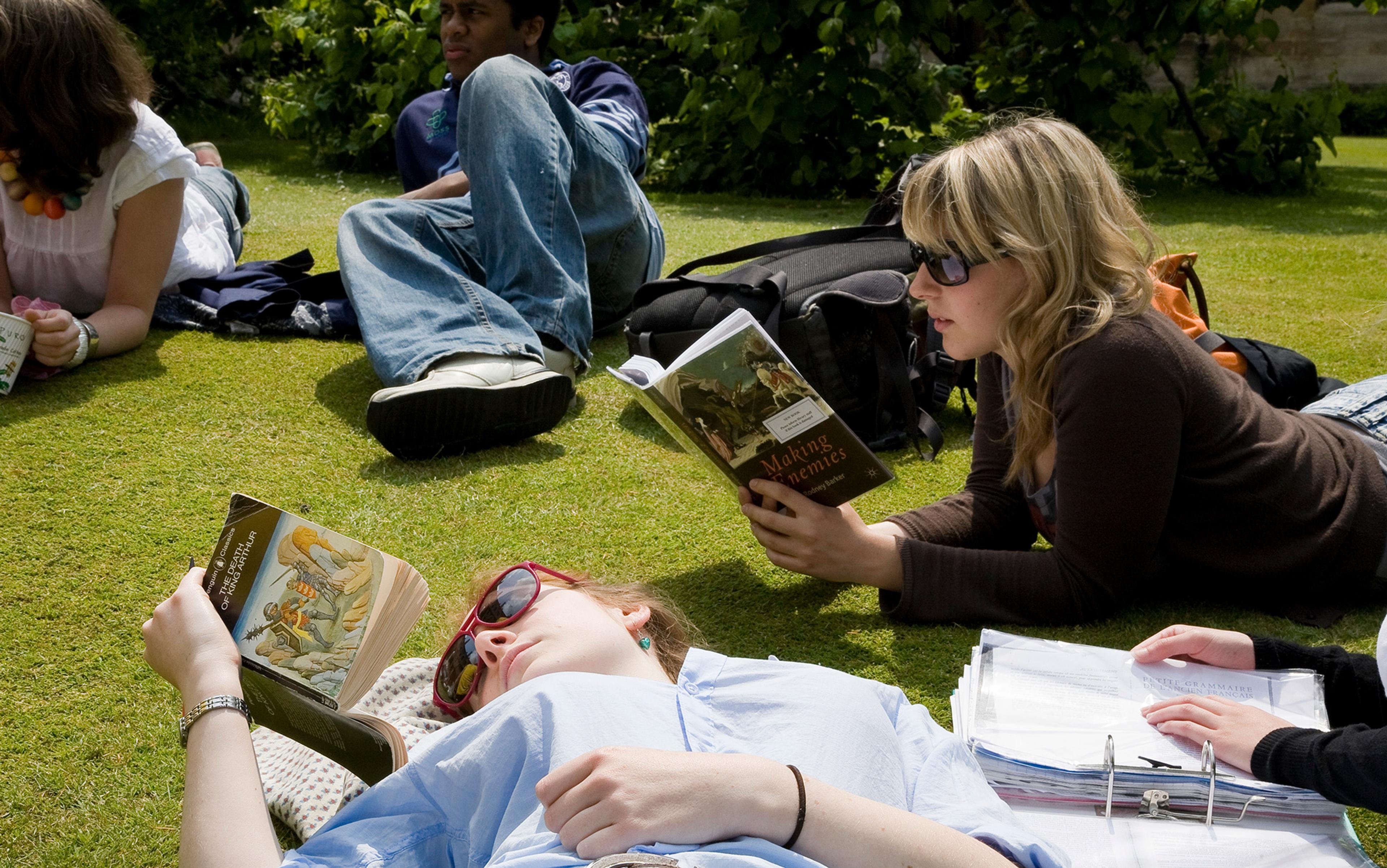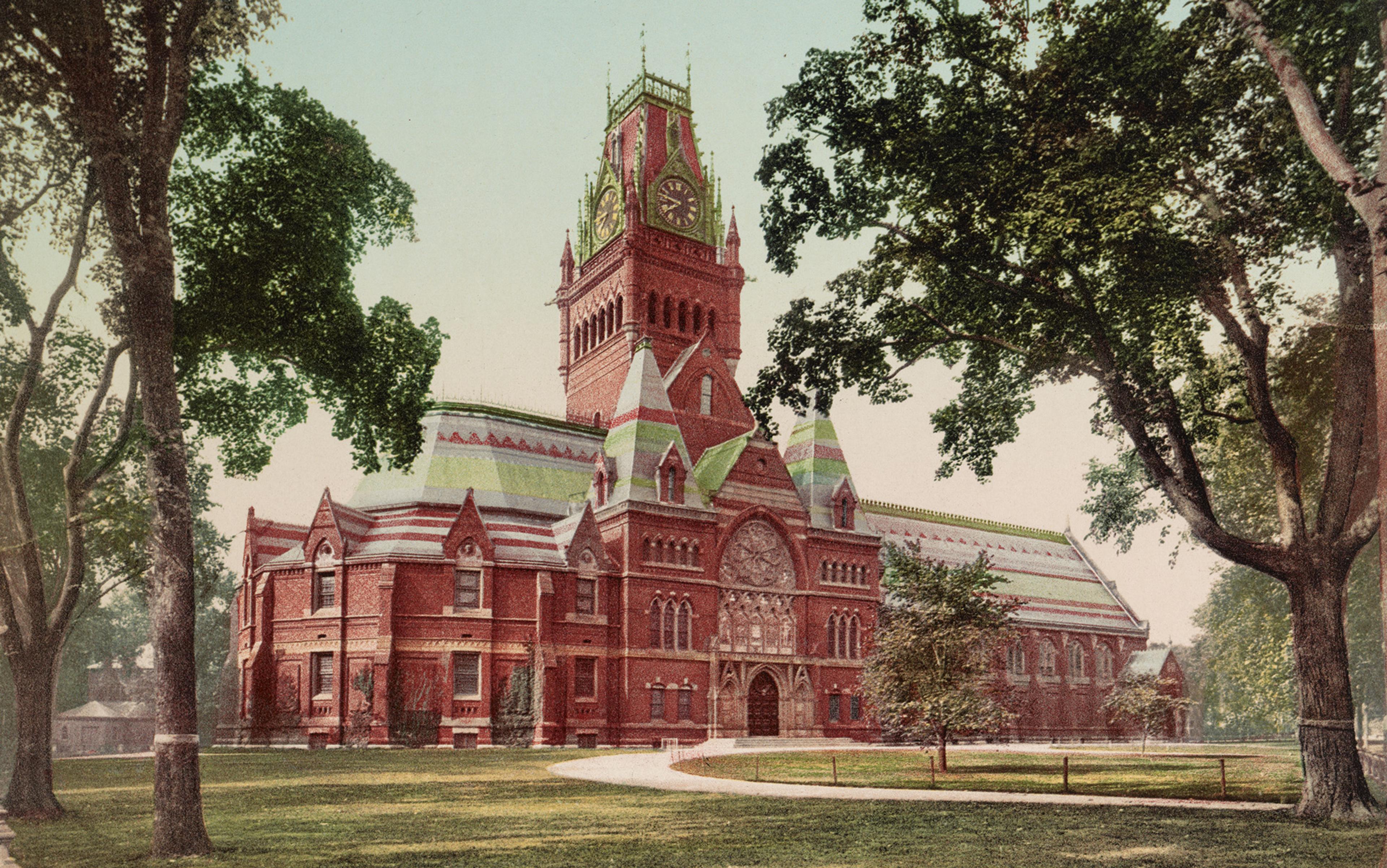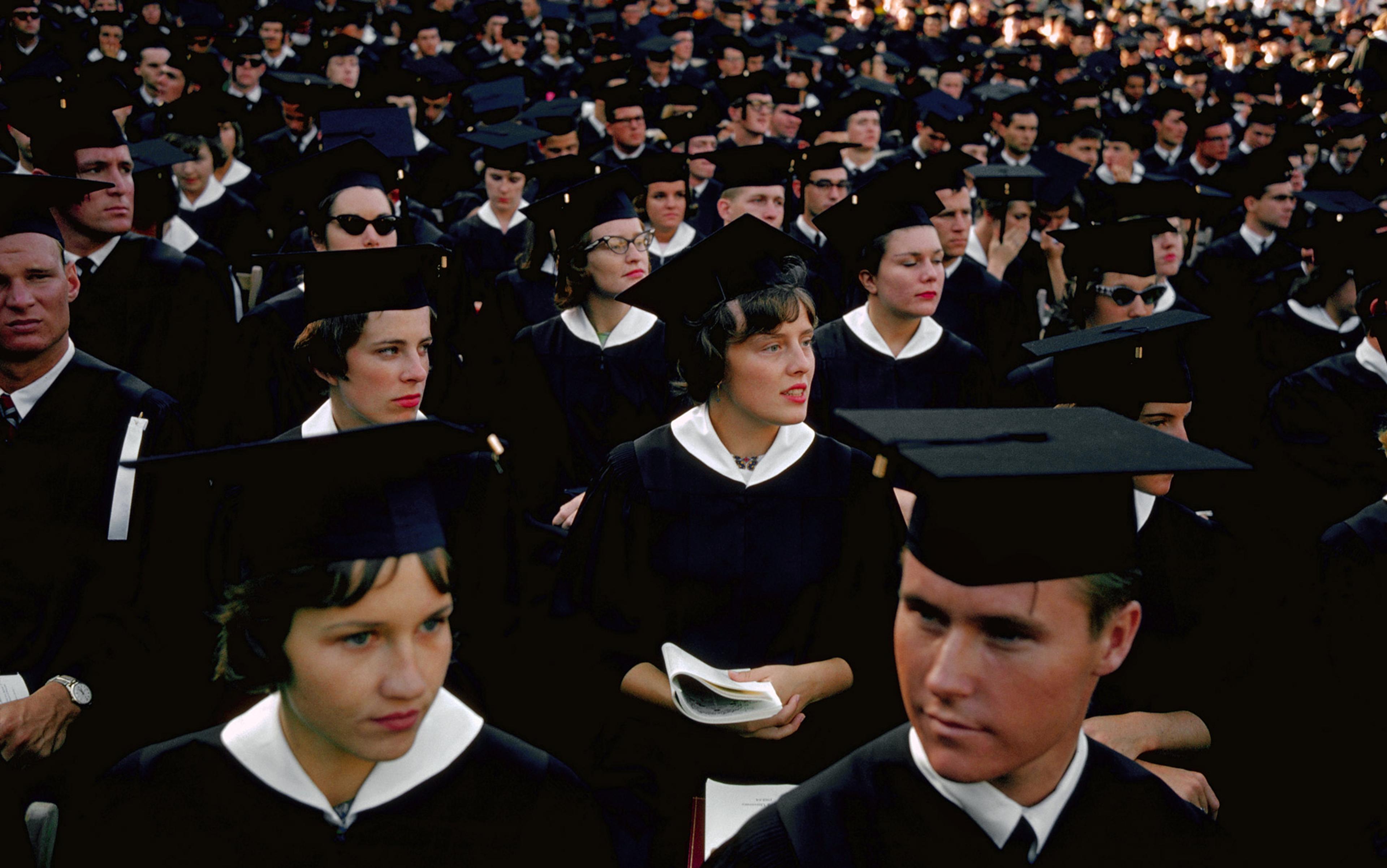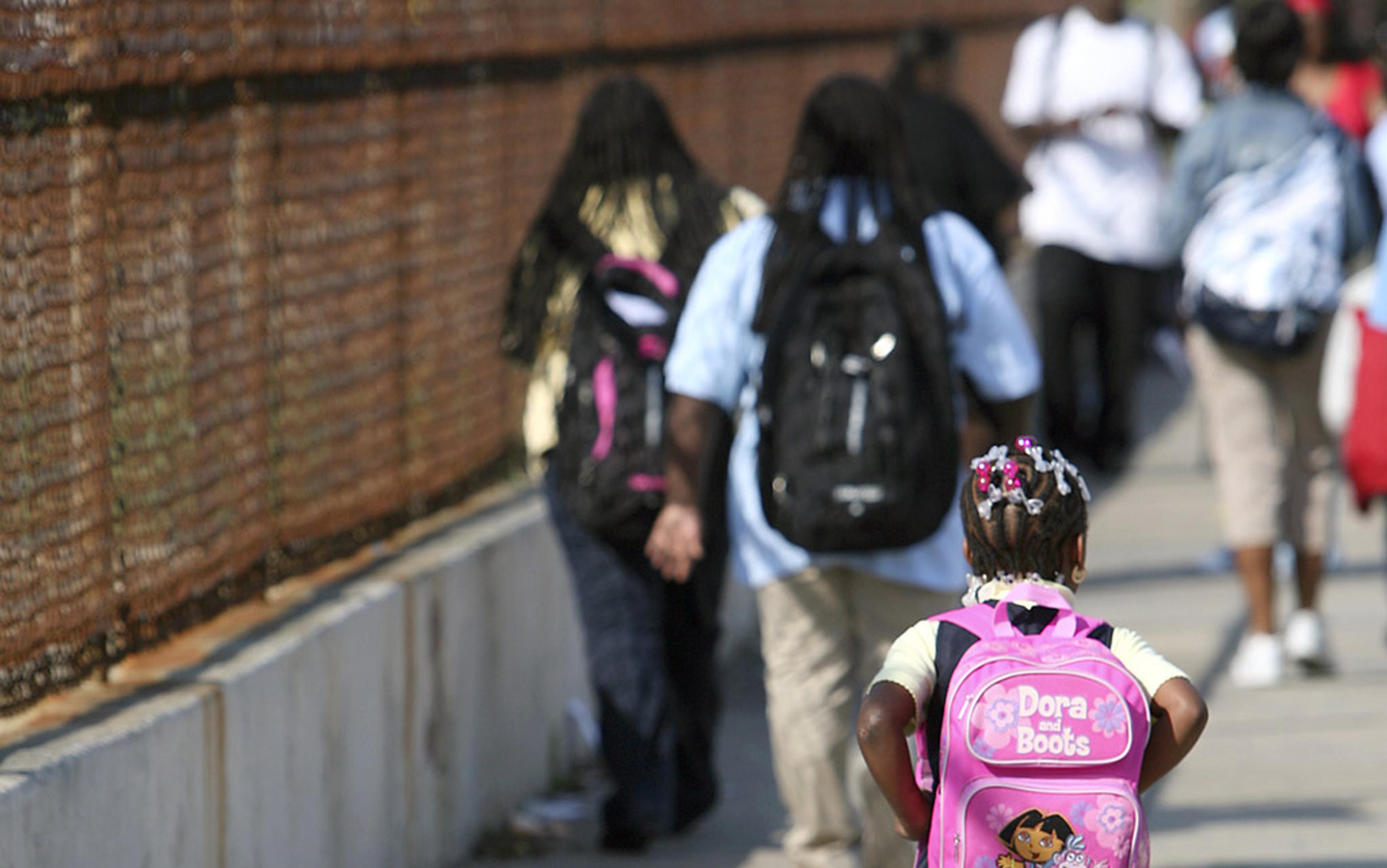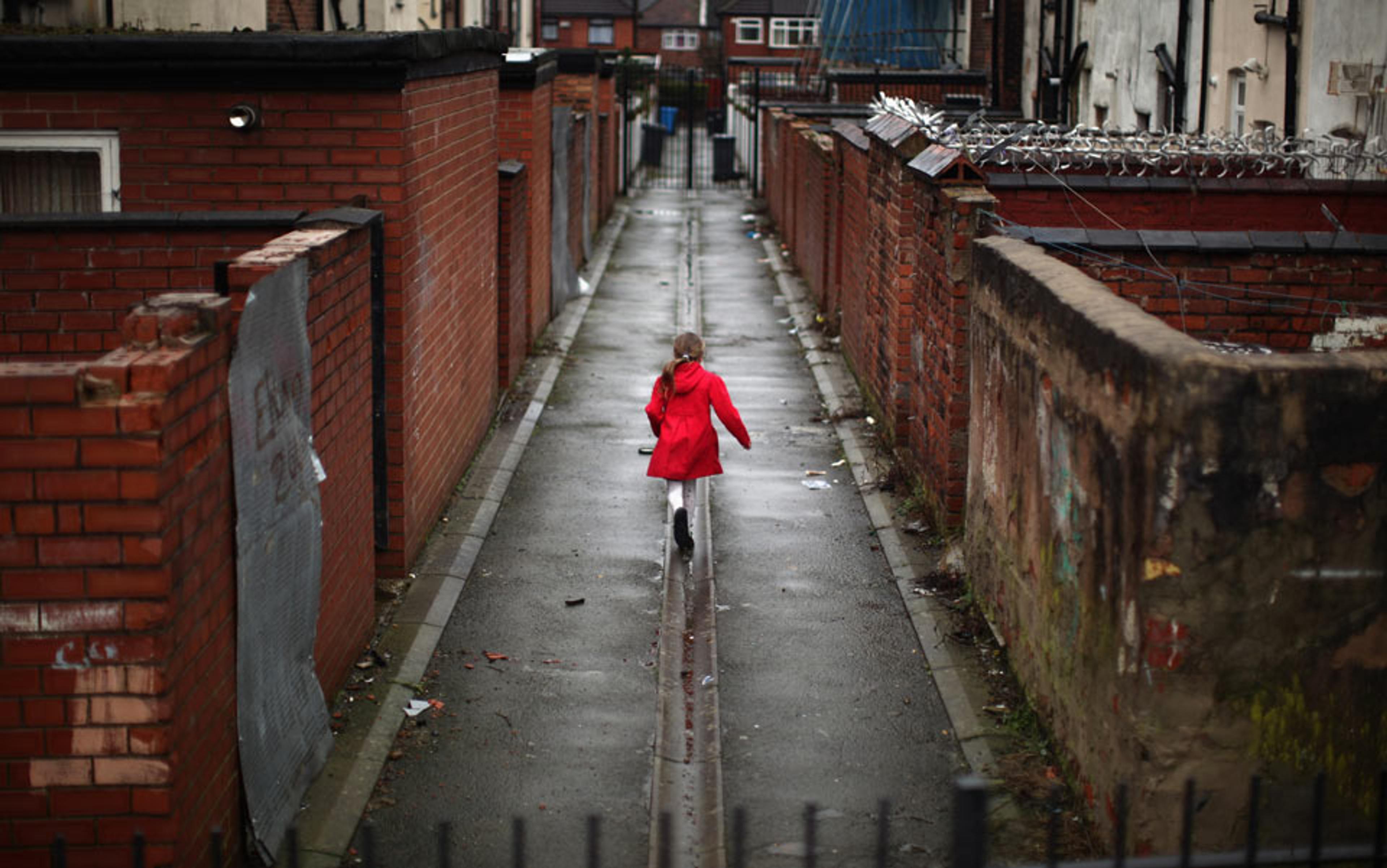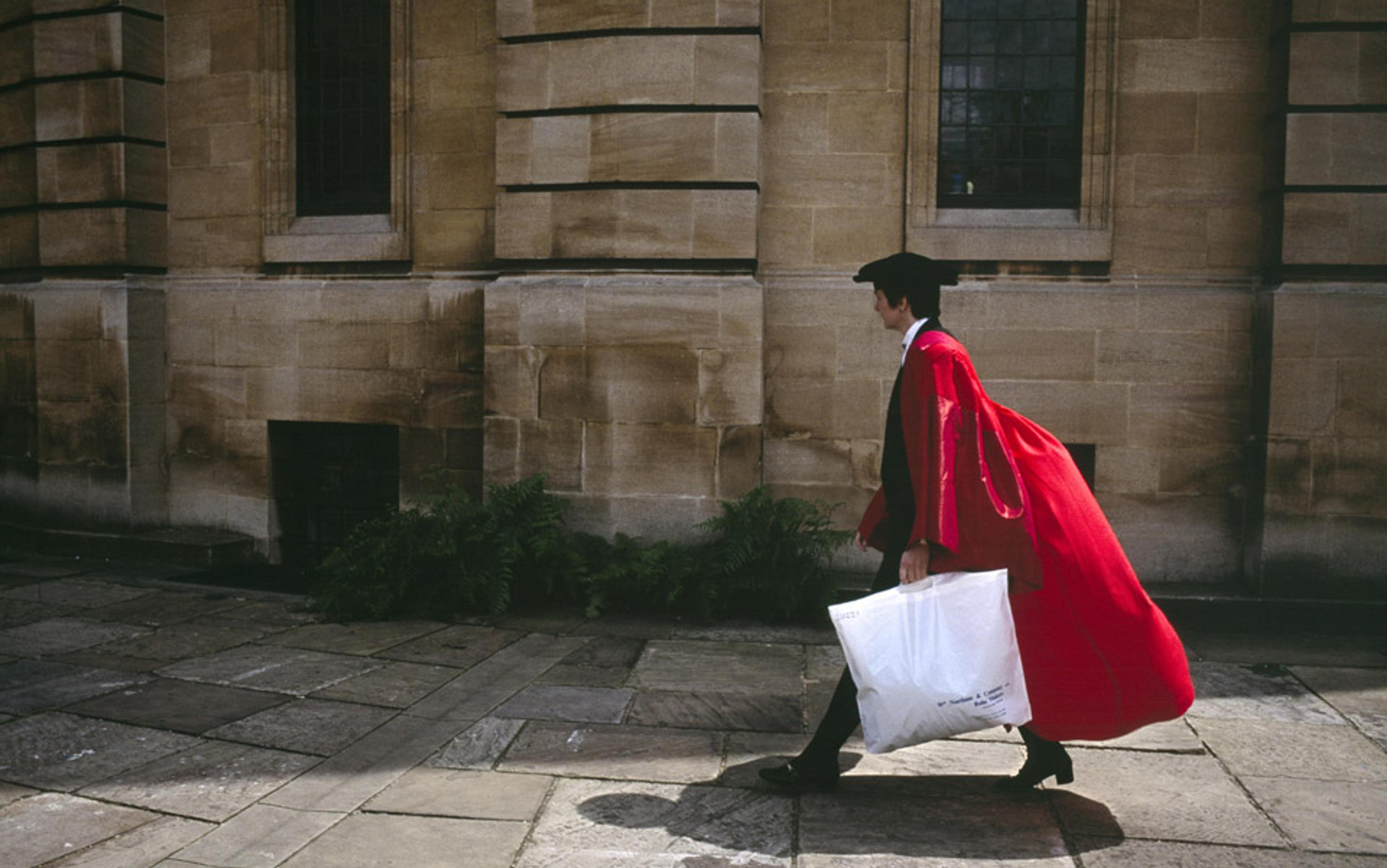Education is crucial to a democratic society because it is how we ensure that future citizens will have the knowledge and skills our societies need. In countries such as the United States, the United Kingdom and France, some educational institutions play a further role – they educate the elite. All of the current Supreme Court Justices in the US attended either Harvard University or Yale Law School. In the UK, 41 out of 54 of the country’s past prime ministers received their education at the University of Oxford or the University of Cambridge. Seven recent French presidents and 12 prime ministers attended the Paris Institute of Political Studies, commonly called Sciences Po. These universities pride themselves not only in offering superb educational opportunities, but in educating those who will go on to hold influential positions.
One might reasonably ask, how is a system of educational institutions for the elite democratic? Ideally, a democratic society should make sure that the interests of all sectors of society are represented. Those in the elite have disproportionate power in making their voices heard, whether through lobbying, writing policy briefs, or deciding what news gets coverage in The Times or The Wall Street Journal, while voices from groups and classes with less power are chronically underrepresented. The idea of an elite would seem to be at odds with central democratic values.
Concerns about the undemocratic nature of elite institutions has led to intense public scrutiny of their admissions practices. Recently, a lawsuit claimed that Harvard unfairly discriminated against Asian-Americans. Oxford and Cambridge have faced criticism after a report showed that they admit a staggeringly low number of black students. Sciences Po’s efforts to increase socioeconomic diversity have also been controversial. Even though these institutions educate a minuscule proportion of university students, their admissions practices are a source of public concern because of the disproportionate amount of power they hold. One way of holding them accountable for living up to the democratic ideal is to insist that they admit students from a broad swath of society, including from those communities that are historically marginalised. The argument is that this will make the resulting elite more representative of the concerns of the country as a whole.
Consider, for example, a doctor working in a hospital that serves residents in a low-income neighbourhood of Detroit or a rural farming community in Montana. In the US, people from many cities, towns and rural areas outside the rich urban centres are not part of public conversation and attention. A physician in such a place should have the technical knowledge required of a good doctor. But technical skill alone is not enough. In order to serve her community well, she needs to understand the concerns of the people with whom she works, and be motivated to serve their interests. Knowing how to interact with her patients and colleagues is crucial. As the philosopher Elizabeth Anderson has pointed out, if all doctors came from the same privileged class, they would be unlikely to know enough about the interests of those living in marginalised sectors of society. They might be less motivated to speak up for them, and more likely to lack the social knowledge to competently represent them. Elite universities that admit students who grew up in inner-city Detroit, rural Montana or hundreds of other locales in the US will produce better doctors for the country as a whole. The people will be better served, and by a more diverse and representative elite. This diversity rationale is one of the most well-accepted arguments in favour of affirmative action.
As a Latina first-generation college student who attended Princeton, I also found this argument persuasive until I started teaching at the City College of New York. CCNY is part of the City University of New York (CUNY), the third largest public university system in the US, and arguably one of the most diverse. It is there that I started to see that the focus on elite universities as engines for democracy is misplaced.
The diversity argument relies on an oversimplified view of what happens within educational institutions. Universities and colleges are places where knowledge is pursued and shared, but they are also social institutions made up of people who influence one another in myriad ways. College transforms students as thinkers. It also changes them significantly as social beings. All students undergo this kind of transformation in college. For students drawn from low-income neighbourhoods who are attending elite educational institutions, this transformation is bound to be profound. In all likelihood, college will be the first time that these students interact on a regular basis with members of the top echelons of society. These students are also learning how to be a part of the elite spaces they will enter after graduation. In doing so, they are likely to become less representative of the outsiders that they were.
Recent research is helping us to better understand the experience that first-generation students undergo when they enter college. Nicole Stephens, a psychologist at Northwestern University, suggests that there is something of a mismatch. The cultural framework that first-generation students (those whose parents don’t have a four-year college degree) bring to campus, and that of continuing-generation students (those who have at least one parent with a four-year college degree), administrators and professors, are different. First-generation college students are more likely to have an interdependent cultural framework, seeing the world and themselves in a way that is more socially oriented and that emphasises family, community and social place. Continuing-generation students, administrators and professors tend to have an independent cultural framework, seeing the world and themselves in a way that is more individually oriented and that emphasises self-expression, autonomy and independence. Part of the achievement gap, she hypothesises, between first-generation and continuing-generation students derives from this difference.
Students from marginalised communities who attend elite universities find themselves living and studying not just with the children of middle-class professionals but also with those who come from the richest families in the country. These universities produce an elite, but they also reproduce it, admitting a disproportionate number of students from the highest income sectors. As research from the economist Raj Chetty’s project shows, four in 10 students from the top 0.1 per cent attend an ‘Ivy plus’ college (the eight Ivy League universities, plus the University of Chicago, Stanford University, the Massachusetts Institute of Technology and Duke University). The median income at these institutions is $171,000, or the 92nd percentile of the income distribution. Oxbridge admits around 80 per cent of its student body from the top-two wealthiest income brackets in the UK. So what is it like, if you are a student who comes from a poor or outside background, to attend and be educated at such a university?
To isolate the effect of culture on the experiences of college students, the sociologist Anthony Jack compares the experiences of two different groups of low-income, minority students at a selective, liberal arts college. What Jack calls ‘the privileged poor’ are those low-income, black students who attended elite, private high schools on scholarship programmes. Meanwhile, ‘the doubly disadvantaged’ are students who come from a similar family background but who attended their regular public high school. The privileged poor find college a much easier place to navigate. They are already familiar with the culture that dominates such institutions. One of the privileged poor students whom Jack interviews says:
You get in places and you start to feel privileged. Especially with me coming from boarding school, I’ve already been infected … You get spoiled. You don’t even think of it. Sometimes I don’t even think of myself as a low-income student.
Jack’s research suggests that the experience of being at an elite, private high school changes these students. It tends to erode the differences between them and the more privileged students.
The sociologist Pierre Bourdieu termed the aspects of social class – knowledge of social norms, tastes and culture – cultural capital. Cultural capital serves to mark class distinctions and make it more difficult for those in the working class to be at ease among the elite. But educational institutions are dynamic places in which class is not only reproduced but negotiated. Students adapt to the cultural barriers they confront. Low-income students do not emerge from the college experience simply having gained technical expertise – they have learned to be a part of a new social world.
I am myself a product of this process. I am not only a first-generation college student, but an immigrant raised by my working-class grandmother. Yet I have spent my entire life in elite educational institutions. I came to the US to attend Princeton University, after having attended the most expensive private international school in Lima, Peru. I then went on to get my doctorate at Stanford. The more educated I became, the more like my peers at those institutions I became, while growing dissimilar to my grandmother and much of my extended family. In the words of Alfred Lubrano’s memoir Limbo: Blue-Collar Roots, White-Collar Dreams (2003), I exist in a kind of limbo, purely native to neither world yet adept at both.
Public universities score much better at helping to lift low-income students into a better life
Of course, education aims to transform students. There is no avoiding the fact that the outsiders picked up into the meritocratic system will become, in some central ways, less like the majority of their communities who lack such education. A doctor is different than someone who didn’t go to college in so many ways. First, obviously, because of the skills and knowledge she has, and that many others lack. But also because our society values and remunerates professional skills and knowledge more than it does manual labour and service work. It is easy to imagine that these differentiations, built out of educational attainment, fully account for the transformation of first-generation students. It would follow that, in order to make sure that those entering the elite have sufficient professional expertise, we must accept that they are going to be different from the communities they represent and serve. Or, to put it another way, I would rather be treated by a skilled doctor who struggles to relate to the reality of my life than by someone who is less skilled but more similar to me. But this argument trades on a false confluence between expertise and elite education.
There are many different kinds of institutions of higher education. Chetty and his colleagues have shown that elite US universities educate a minuscule proportion of students from the bottom of the income scale. They have fashioned a mobility report card, one that takes into account how many students from the bottom half of the income distribution scale are admitted, and how effectively these universities are able to lift such students into the top of the income distribution. Elite universities and colleges do badly on this measure. They are very good at catapulting those low-income students they admit to the top, but they admit an embarrassingly small number of such students. Public universities, such as those in the CUNY system and also California State, Los Angeles and the University of Texas at El Paso, score much better at helping to lift low-income students into a better life. They do better in promoting upward mobility, in part, because they admit so many more students from the bottom half of the income scale than the most selective elite universities.
Another key difference between universities such as the CCNY, where I teach, and Princeton, where I did my undergraduate degree, is that they offer quite different social environments in which that learning takes place. A student attending an Ivy-plus college acquires her skills and knowledge in an environment dominated by the cultural capital and norms of the very elite. A City College student, in contrast, can gain similar professional or technocratic expertise, but will do so amid many other working-class and low-income students. The different social experiences are bound to influence a student in ways that go beyond professional expertise.
One might argue that we can’t compare these two kinds of educational experiences because an elite university is bound to offer a much better education than a public university. However, the Chetty data gives us reasons to resist this conclusion. Income might be an imperfect proxy for the knowledge and skills gained in college, but presumably those students who attend Texas, El Paso or Cal State, LA and jump to the top of the income distribution have sufficient expertise to be generously valued by their employers. There is some evidence that going to a selective college does boost one’s earnings, although, once we control for family background and a host of other factors, the effect is much less marked. There are many moderately selective universities that offer a good education and a social environment that is more representative of the country at large. If we are truly concerned with democratic representation, these institutions, many of them public, not the Ivy-plus coterie, are the democratic institutions on which we should be focused.
However, one need not deny that there are significant benefits to receiving an education at an elite university in order to accept that there are also significant costs. Being educated in a philosophy department that is consistently ranked among the best in the world has certainly made a difference to my philosophical skills and career trajectory. Yet, when I arrived at CCNY, there was so much about the lived experience of poor, working-class Americans that I hadn’t understood, despite taking several sociology, politics, history and anthropology classes in college. My education was both ‘excellent’ and lacking.
Since its founding, CCNY has embraced serving the least-advantaged as part of its mission. The New York politician Townsend Harris, who in 1847 lobbied to support the establishment of the college, wrote that it would be a place that would: ‘Open the doors to all, let the children of the rich and the poor take their seats together and know of no distinction save that of industry, good conduct, and intellect.’ The mission continues today: 41 per cent of our students are first-generation college students, and 37 per cent come from families that make less than $20,000 a year. That is, almost half of CCNY students come from families that are poor. This means that my students face many challenges – some work long hours while taking a full course load, some lack academic preparation in crucial areas, and others already have families of their own. I do not want to glorify these obstacles. But it is important to recognise how their rich, complicated lives add a dimension to the classroom that I didn’t enjoy as an undergraduate or graduate student.
In one recent class, we read the philosopher Tommie Shelby’s work on the inner city. Shelby argues that those who live in parts of the country that lack access to good jobs, educational prospects and other basic necessities are consequently freed of the political obligation to fulfil their part of the social contract. The students enjoyed discussing Shelby’s groundbreaking work, as I expected. I hadn’t anticipated that a handful of students that semester were born and living in parts of the Bronx that weren’t so different from the communities Shelby studied in his book. This fairly abstract and sophisticated philosophical work, in a sense, was about their neighbourhood.
One student told us, with tears in his eyes, how he was the only ‘civilian’ among his group of friends, and how many of his friends considered themselves outside the law. He described how his friends had been shunted to the margins of society, often as a consequence of minor offences that put them in trouble with the police. The class was quiet. After a few minutes in which several of us fought off tears, we thanked him for sharing his life experience. Like their counterparts at much more elite institutions, CCNY students are reading works of philosophy, evaluating arguments and developing many important technical skills. They are also forming relationships with and learning from other students with very different social knowledge.
Instead of a room of Ivy League or Oxbridge graduates, fill that room from CCNY or the University of Hull
It is important to recognise the extent to which the social norms at elite educational institutions strongly discourage ‘outsider’ students from revealing themselves as such. One recent graduate I interviewed admitted that she joined one of Princeton’s infamous eating clubs as an undergraduate because she believed that not doing so would damage her prospects on the job market. She had been told that prospective employers would automatically presume anyone who had not joined must be unable to afford it. So even as those outsider students who attend elite universities are pressured to adapt to the dominant cultural norms and expectations at these institutions, there is also a countervailing incentive to conceal anything that could expose one as not really belonging. The student in my class was comfortable enough sharing his experience because he looked around and saw many students whose experiences were not dissimilar from his own.
Instead of imagining elite universities and colleges as black boxes into which ‘diverse’ students are deposited, later emerging ready to shape our society, we should understand more about what happens within these institutions. We must ask whether the prevailing dynamics are more or less conducive to producing students enriched and empowered by educational experiences that make them better representatives of those who are often excluded. Not all institutions do an adequate job of creating such environments.
If we are concerned with creating a representative elite, we shouldn’t just look at the racial or economic background of its future members, but also at their educational experiences. If, for example, we want to foster policy discussions that include a broad range of perspectives, we must do better than turning to a room full of Ivy League or Oxbridge graduates. Instead, fill that room with graduates from places such as CCNY or the University of Hull. These students are much more likely to have educational experiences that can contribute different insights for a more representative elite.
I do not intend this argument as a disavowal of the fundamental democratic principle that leads us to affirmative action. Representation matters in a democratic society. A diverse elite is better able to advance the interests of all sectors of society. Unfortunately, the way that this principle has been practised is too narrowly focused on the demographics of elite institutions. Instead, as I have suggested, we should consider whether the education of those in the elite has done a good job of furthering their understanding of a diverse swath of society. Some universities do better at giving students this type of educational experience. It is time to recognise that they are the essential way towards a more truly representative elite, one that incorporates not just diversity but real difference too.
